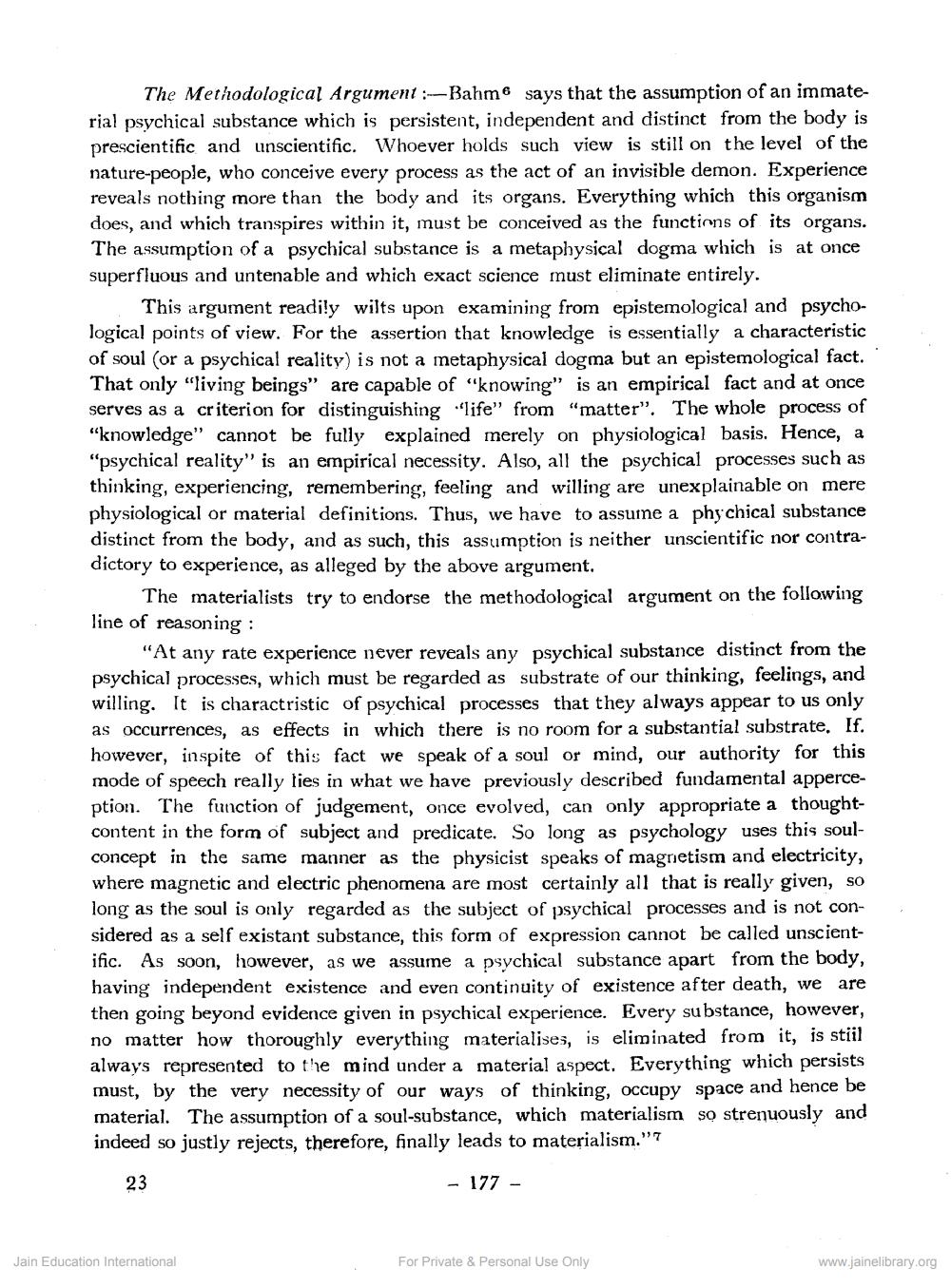Book Title: Refutation of Western Materialism On the basis of Jain Philosophy Author(s): Mahendrakumar Muni Dwitiya Publisher: Z_Kailashchandra_Shastri_Abhinandan_Granth_012048.pdf View full book textPage 2
________________ The Methodological Argument Bahm6 says that the assumption of an immaterial psychical substance which is persistent, independent and distinct from the body is prescientific and unscientific. Whoever holds such view is still on the level of the nature-people, who conceive every process as the act of an invisible demon. Experience reveals nothing more than the body and its organs. Everything which this organism does, and which transpires within it, must be conceived as the functions of its organs. The assumption of a psychical substance is a metaphysical dogma which is at once superfluous and untenable and which exact science must eliminate entirely. This argument readi!y wilts upon examining from epistemological and psychological points of view. For the assertion that knowledge is essentially a characteristic of soul (or a psychical reality) is not a metaphysical dogma but an epistemological fact. That only "living beings” are capable of "knowing' is an empirical fact and at once serves as a criterion for distinguishing "life" from "matter". The whole process of "knowledge" cannot be fully explained merely on physiological basis. Hence, a "psychical reality' is an empirical necessity. Also, all the psychical processes such as thinking, experiencing, remembering, feeling and willing are unexplainable on mere physiological or material definitions. Thus, we have to assume a phychical substance distinct from the body, and as such, this assumption is neither unscientific nor contradictory to experience, as alleged by the above argument. The materialists try to endorse the methodological argument on the following line of reasoning : "At any rate experience never reveals any psychical substance distinct from the psychical processes, which must be regarded as substrate of our thinking, feelings, and willing. It is charactristic of psychical processes that they always appear to us only as occurrences, as effects in which there is no room for a substantial substrate. If. however, inspite of this fact we speak of a soul or mind, our authority for this mode of speech really lies in what we have previously described fundamental apperception. The function of judgement, once evolved, can only appropriate a thoughtcontent in the form of subject and predicate. So long as psychology uses this soulconcept in the same manner as the physicist speaks of magnetism and electricity, where magnetic and electric phenomena are most certainly all that is really given, so long as the soul is only regarded as the subject of psychical processes and is not considered as a self existant substance, this form of expression cannot be called unscientific. As soon, however, as we assume a psychical substance apart from the body, having independent existence and even continuity of existence after death, we are then going beyond evidence given in psychical experience. Every substance, however, no matter how thoroughly everything materialises, is eliminated from it, is stiil always represented to the mind under a material aspect. Everything which persists must, by the very necessity of our ways of thinking, occupy space and hence be material. The assumption of a soul-substance, which materialism so strenuously and indeed so justly rejects, therefore, finally leads to materialism."? 23 - 177 - Jain Education International For Private & Personal Use Only www.jainelibrary.orgPage Navigation
1 2 3 4 5 6 7 8 9
